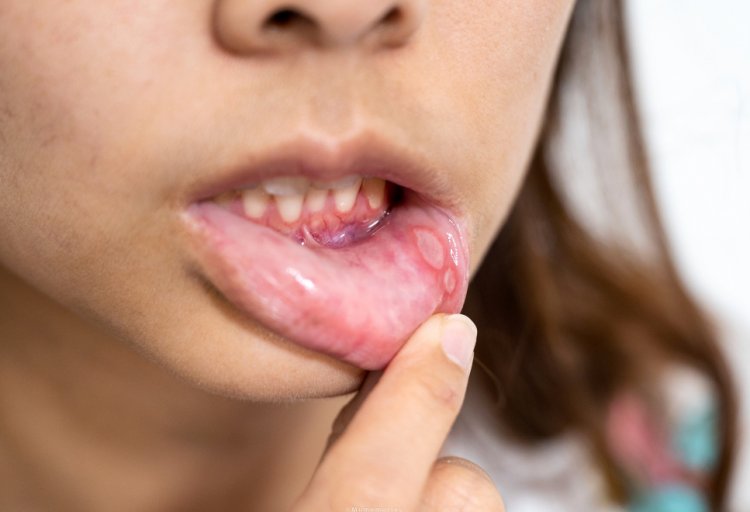Dealing with Mouth Ulcers: A Comprehensive Guide
Mouth ulcers, also known as canker sores, are painful sores that develop on the mucous membranes inside the mouth. While they are usually harmless and tend to heal on their own, they can cause discomfort and interfere with eating, drinking, and speaking. Understanding the causes, symptoms, diagnosis, and treatment options for mouth ulcers can help individuals manage this common condition more effectively.

Causes:
The exact cause of mouth ulcers is not always clear, but several factors may contribute to their development, including:
- Minor injury: Accidental biting, brushing too vigorously, or injury from dental work can damage the delicate tissues inside the mouth and trigger ulcer formation.
- Certain foods: Spicy, acidic, or rough-textured foods may irritate the lining of the mouth and increase the risk of developing ulcers.
- Stress: Emotional stress or anxiety can weaken the immune system and make individuals more susceptible to mouth ulcers.
- Genetics: Some people may have a genetic predisposition to developing mouth ulcers, with a family history of the condition.
- Underlying medical conditions: Certain medical conditions, such as autoimmune diseases or vitamin deficiencies, may increase the risk of developing mouth ulcers.
Symptoms:
Mouth ulcers can vary in size and severity, but common symptoms include:
- Pain or discomfort: Mouth ulcers can be painful, especially when eating, drinking, or brushing teeth.
- Redness and swelling: The area around the ulcer may appear red and swollen.
- White or yellowish center: Ulcers often have a white or yellowish center surrounded by a red border.
- Difficulty eating or speaking: Large or numerous ulcers may make it difficult to chew, swallow, or speak comfortably.
Diagnosis:
In most cases, healthcare providers can diagnose mouth ulcers based on a physical examination and medical history. However, if ulcers are unusually large, persistent, or recurrent, further evaluation may be necessary. This may include:
- Blood tests: Blood tests can help identify underlying medical conditions that may be contributing to mouth ulcers, such as vitamin deficiencies or autoimmune diseases.
- Biopsy: In rare cases, a small tissue sample may be taken from the ulcer for laboratory analysis to rule out more serious conditions, such as oral cancer.
Treatment:
Treatment for mouth ulcers aims to relieve pain, promote healing, and prevent recurrence. Options may include:
- Pain relief: Over-the-counter pain relievers, such as ibuprofen or acetaminophen, can help alleviate discomfort associated with mouth ulcers.
- Topical treatments: Applying topical gels, pastes, or mouthwashes containing ingredients such as benzocaine, hydrogen peroxide, or corticosteroids can help reduce pain and inflammation and promote healing.
- Oral medications: In severe cases or for recurrent ulcers, healthcare providers may prescribe oral medications, such as corticosteroids or antimicrobial agents, to reduce inflammation and prevent infection.
- Lifestyle modifications: Avoiding trigger foods, managing stress, practicing good oral hygiene, and quitting smoking can help prevent mouth ulcers from recurring.
When to See a Doctor:
Most mouth ulcers heal on their own within 1-2 weeks without medical treatment. However, individuals should seek medical attention if:
- Ulcers are unusually large, painful, or persistent.
- Ulcers are accompanied by fever, swollen glands, or other systemic symptoms.
- Ulcers interfere with eating, drinking, or speaking for an extended period.
- Ulcers recur frequently or are associated with other medical conditions.
In conclusion, mouth ulcers are a common condition that can cause discomfort and inconvenience, but they are usually harmless and tend to heal on their own. Understanding the causes, symptoms, diagnosis, and treatment options for mouth ulcers can help individuals manage this condition effectively and seek appropriate medical care when needed.
#MouthUlcers #CankerSores #OralHealth #DentalCare #OralHygiene #MouthPain #DentalHealth #MouthCare #HealthyMouth #MouthSoreness #CankerSoreRemedies #OralLesions #MouthUlcerTreatment #HealthTips #Wellness #SelfCare
Disclaimer:
The information provided in this article is for educational purposes only and should not be considered medical advice. If you have any health concerns or are experiencing symptoms, it is important to consult with a healthcare professional, such as a doctor or clinic, for proper diagnosis and treatment. Always seek the advice of your doctor or other qualified health provider with any questions you may have regarding a medical condition. Do not disregard professional medical advice or delay in seeking it because of something you have read in this article.
What's Your Reaction?





















